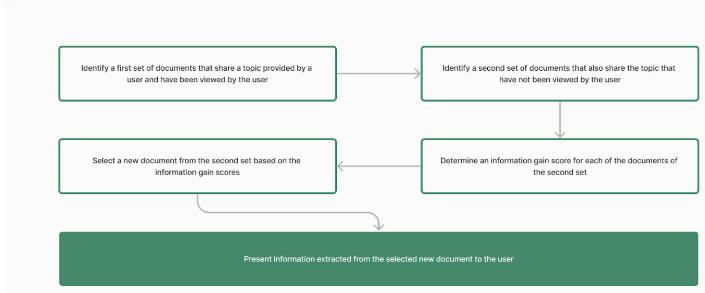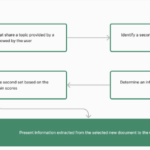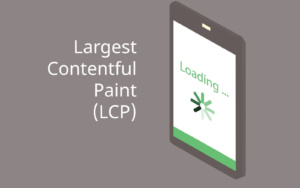Learn the definition and importance of information gain for SEO purposes by exploring its impact on search rankings and adapting your content strategy accordingly.
Google was awarded a patent on “information gain score” in June 2022, which may explain several algorithm updates – such as helpful content updates – following it.
Google may utilize information gain score as one way of prioritizing content that meets their criteria of original, high-quality, people-first content that exhibits E.E.A.T qualities?
My guess: Yes. Here’s why.
What Is an Information Gain Score (IGS)

An information gain score (IGS) measures how distinctively different your content stands from others within its corpus – in this instance all documents Google considers when ranking search queries for any given query.
Patent scenarios describing how to calculate information gain scores typically take the form of subsequent queries or document views and search result views; it represents an individual learning process specific to them or whatever topic they’re searching about.
Bill Slawski provided an in-depth technical explanation of this process when his patent was still under consideration in 2020.
One of the more interesting tidbits I see when reading patent language is this:
Google provides flexibility for information gain scores to be calculated algorithmically and used as training data across machine learning models.
Future developments could render obsolete the need for an initial set of documents to calculate information gain scores:
“[i]n some implementations, data from each document in the second set may be fed directly into a machine learning model as input.”
How does information gain affect search rankings?
From an operational point of view, this means Google:There must be an easy and accurate way to measure how different or alike your content is from other similar topics in that area, along with an explicit metric for actively promoting or demoting it depending on this level of difference or sameness.
Information Gain Score suggests an algorithm element targeting AI-generated content and new content farms.
By contrast, content that lacks originality could be marked down; even if its words have been arranged differently.
Skyscraper-focused content could fall under this purview for targeted demotion.
Information gain score and helpful content system are forcing innovation where there exists currently an ocean of “perfectly optimized” content.
Can Information Gain Improve Website Visibility?
Utilizing Information Gain for content development or maintenance can have multiple advantages: it reduces workload while simultaneously improving site rankings.
- Examine your data source carefully.
- Find Market Opportunities.
Ideally, it would be interesting to see what an expert or sales manager could create when asked to write about solving their client’s X problem without using Google as part of any “SEO requirements. Perhaps what results from their writing could be surprising innovative yet relevant responses!
Most of us don’t have the luxury of making decisions without planning and need more structure to adapt, change and alter how we create content.
So let’s discuss ways we can modify this approach.
Where will you get information from?
Though it may feel counter-intuitive, expect to spend much more time than before researching content for publication.
If your information comes solely from the web and its search results pages (SERPS), and not other reliable sources, then that could be part of the problem. We all do it from time to time but is it really necessary?
Good, quality content takes time.
Content that we produce to promote ourselves, our companies and brands should meet “thought leadership” criteria.
What exactly constitutes thought leadership? At its core, thought leadership entails informed opinions.
At times it may require taking a stand, offering specific opinions or reaching specific conclusions.
And to do that effectively, you require information to support and defend your opinion or at the very least support its existence.
At any company, there will be unique data waiting to be utilized into an article or tool for their clients and customers – for instance:
Customers love getting customer service feedback and logs; reviews; feedback and sales calls from your sales team; usage data that is aggregated and published are all sources that cannot easily be copied by competitors. Ideally you want these to become content sources that set your organization apart.
These experiences can also create new media experiences that Google simply can’t.
Based on real customer data and experience.
Content that search results “tell” you to produce may not actually meet customer requirements.
Beginning your research from your own data will enable you to quickly eliminate much of the content written solely for search engines.
What opportunities exist in the market?
While it can be tempting to go directly to Google or Bing and follow what ranks highest for searches results, remember that they only do this if the content in their hands is of exceptional quality.
No content creator can (yet) generate their own material that specifically answers what an internet searcher is searching for if none already exist.
So the content ranking might not reflect actual expertise and provide solid answers, yet because it represents what ranks, this content still ranks.
So when creating new content, we should also pay attention to its topical relevance and any areas associated with your topic that other competitors aren’t taking full advantage of.
Tools which can assist with understanding the relationships among your competitors include:
Natural Language API demo, Diffbot demo and Orbitwise are tools you can use to better comprehend the semantic topic relationships associated with your primary topic that might not yet have been covered by competitors.
MarketMuse offers TF-IDF via Ryte and keyword clustering with Semrush (both paid). If desired, create your own topic modeling tool using Latent Dirichlet Allocation in Python (not tested yet)
Each tool comes with its own benefits and drawbacks; therefore, your organization should carefully weigh which options might offer the greatest advantage when making data-related compromises.
As with anything, these rankings represent only an approximation of Google’s search engine ranking system.
Remembering the cost implications of AI content production should also serve as a cautionary tale for Google.
More content equals incrementally higher electricity bills, so they have every incentive to delete as much as they possibly can before going through all three crawlers.
Find ways to create content that meets both Google’s standards and that of your customers.
Search Engine Land’s contributing authors are selected based on their expertise and contributions to the search community. Their writing is reviewed for quality and relevance for readers – their opinions remain their own.


















